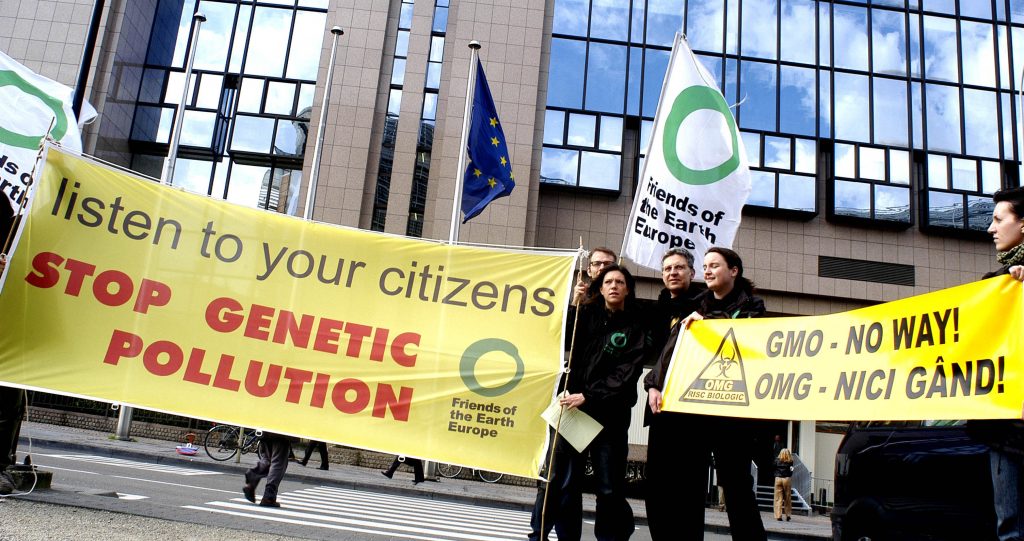Today’s vote by EU environment ministers in favour of a new law that would theoretically allow individual countries to ban genetically modified (GM) crops is a poisoned chalice which could open Europe’s fields to more biotech crops, says Friends of the Earth Europe.
The proposed new law would grant biotech companies, like Monsanto and Syngenta, unprecedented power. They would be given the legal right to decide whether a national ban should be allowed. If companies oppose bans, national governments would be forced to fall back on non-scientific legal grounds, opening the door to legal challenges.
Mute Schimpf, food campaigner for Friends of the Earth Europe said: “It is unacceptable that companies like Monsanto will be given the first say in any decision to ban their products. Governments must be able to ban unwanted and risky GM crops without needing the permission of the companies who profit from them.”
The law has been proposed in order to encourage member states to approve GM crops at the EU level – something they have refused to do for over 15 years – as long as they can ban pursue bans at the national level. It would allow pro-GMO countries to allow biotech crops, eventually leading to the widespread contamination of seeds, food and feed across the EU.
Mute Schimpf continued: “For more than 15 years national governments have fought against new GM crops and strongly defended their rights to ban them. This proposal is a poisoned chalice that fails to give member states solid legal grounds to ban genetically modified crops. If this law is passed more GM crops could be allowed in Europe, increasing dramatically increasing the risk of contamination opf our food and farming.”
The proposal will now go to the new European Parliament which has already voted on a more comprehensive proposal which would give stronger rights to governments to ban GM crops.
Friends of the Earth Europe is critical of the proposed new law because:
- National governments need to be given genuine powers to keep their fields.
- GMO-free and to protect consumer choice.Forcing governments to ask biotech companies for their authorisation to ban new GM crops is undemocratic. This puts the interests of biotech companies ahead of democratically elected governments.
- The legal basis for banning GM crops needs to be strengthened.
- It gives unprecedented power to biotech companies in decisions to ban a GM crop.
- It reduces the importance of rigorous scrutiny of the health and environmental risks. This represents a weakening of the European safety net that has kept Europe relatively GMO-free, and of the fundamental precautionary principle underlying European policy.







